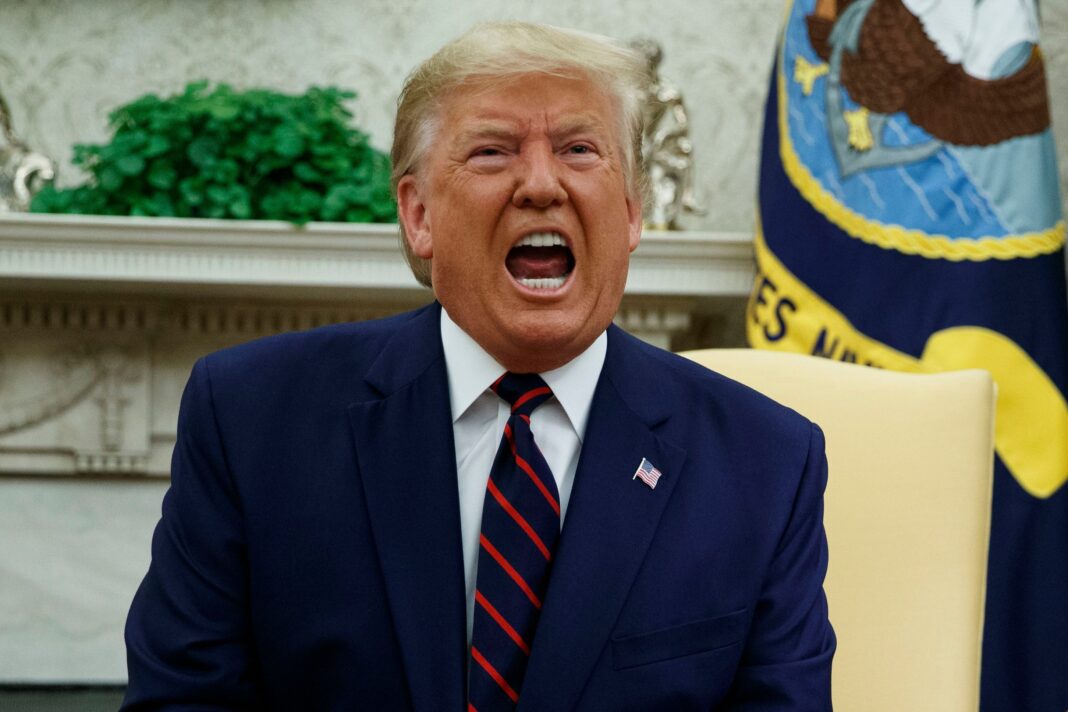The United States has proposed a policy that will limit the length of time foreign students including Nigerians can get a visa for.
The U.S. Department of Homeland Security, in a statement on Thursday, announced the proposal ”to add changes to visas for students, exchange visitors and foreign media”.
In what seems yet another stricter immigration rule, the new rule will restrict international students on admission in U.S. universities to a “fixed period of stay” – two years maximum.
This is a departure from the current policy that allows student visa holders to remain in the U.S. for “as long as they maintain compliance with the terms of admission.”
This also comes months after a failed plan to strip international students of their visas if they are not required to attend some classes in person, especially during the COVID-19 lockdown, in July.
The new rule, if approved, could translate to affected students not getting four-year visas for four-year courses in the U.S.
International students could apply to extend their visas beyond the limits, but the rule would severely tighten the requirements for an extension, the D.H.S said.
According to the D.H.S, the rule would help prevent visa fraud, protect national security and discourage students from overstaying.
The countries targeted in the new policy are those on the U.S. “state sponsor of terrorism list” and ”students from 43 countries that visitors have overstay rate of more than 10 per cent”.
Though ravaged by decade-long Boko Haram insurgency, Nigeria is not on the “terrorism list.” Countries under the list are Iran, North Korea, Syria and Sudan.
But Nigeria has the largest number of students of African origin studying in the U.S. —13,000 out of 39,000 African students admitted yearly, according to the Cultural Affairs Officer of the U.S embassy in Nigeria, Malia Heroux.
In 2019, the D.H.S put Nigeria’s student overstay rate at 13.43 per cent, a little over the 10 per cent benchmark.
Most African countries are also above the 10 per cent benchmark.ADVERTISEMENT
“A key goal of shifting aliens in F status from D/S to admission for a fixed period is to provide pre-defined periods for immigration officers to evaluate whether a nonimmigrant has maintained his or her status,” the DHS said.
“If an immigration officer finds that an alien violated his or her status before or during an EOS adjudication and denies the EOS request, the alien generally would begin accruing unlawful presence the day after issuance of the denial.”
It also said that the proposed rule seeks to reduce instances in which ”F, J, and I nonimmigrants — mostly students and exchange visitors — unlawfully remain in the United States after their program or practical training ends.”
“Under this proposed rule, aliens who remain in the United States beyond a fixed period generally would begin accruing unlawful presence,” it said.
Though the proposal is open for public comment for the next month before legislation is done, critics say the U.S. is primarily targeting students from African countries.
Aaron Reinchlin-Melnick, an American immigration lawyer, said putting restrictions on people from countries with over ‘high’ visa overstay rates “has always been a fairly racist project of collective punishment.”
“DHS says it’s fixing a major problem. But DHS data says just 32,023 people are suspected of overstaying a student/exchange visa in 2019.
“And because the rule is based on PER CENT, the countries with the highest NUMBER of overstays (China, India, Brazil, Canada) aren’t affected.
“Here’s why a % threshold is so stu**d: China: 11,030 student/exchange overstays (unaffected by rule), India: 5,304 (unaffected), Brazil: 3,177 (unaffected), Saudi Arabia: 2,983 (unaffected), South Korea: 2,492 (unaffected), Japan: 1,418 (unaffected), Tuvalu: 1 (restricted),” Mr Reichlin-Melnick tweeted.





